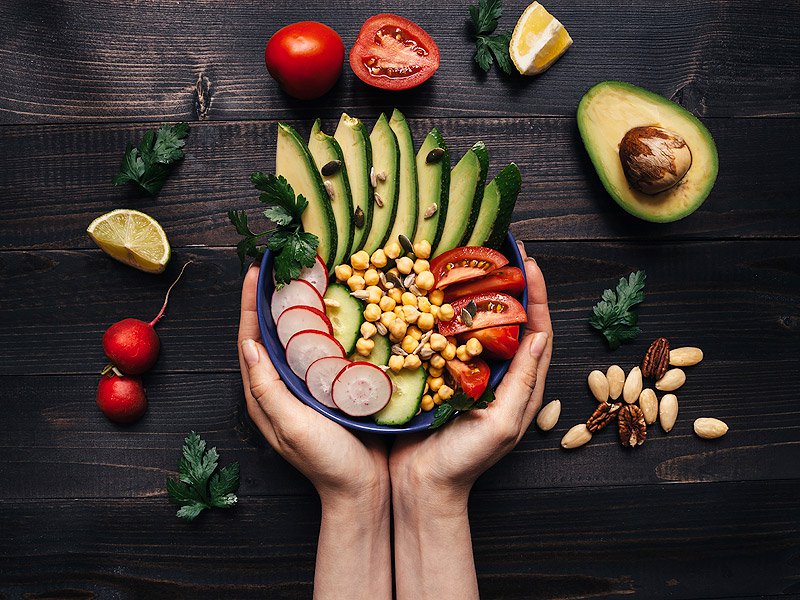Tips for Healthy Living

What is healthy living?
We live in a world where subjectivity in every facet of our lives has been recognized and accepted as truth. Because of this, lifestyles in different parts of the world have different core values and traditions. Some cultures have great work-life balance, while some focus less on work and more on “play”. Many cultures haven’t heard of processed foods and packaged products, while many rely completely on it or advocate for a balance between the natural and the artificial. So how do you define healthy living?
Some places are known for their incredible longevity and minimalistic way of living, despite the cigarettes and daily coca cola’s. While there’s an unquestionable benefit of living a simple life, even the longest centenarians have had “vices”.
Which is why healthy living isn’t as straightforward as people would suggest. Simply put, however, healthy living comes from striking a balance between mental and physical well being, while also being mindful about what we eat, the company we surround ourselves with, our hobbies, passions and interests among many other things that amalgamate to constitute life.
Eating Healthy
Unhealthy eating habits are rampant across the world, but more so in the United States, where close to 100 million adults in the US are obese, according to a 2015 - 2016 report. Fast food, sugary and aerated products are commonly found in core diets. Frozen and ready to eat meals have become massively popular, all the while hiding excessive amounts of sodium, sugar or trans fats, which means America is largely eating unhealthy, inorganic processed foods almost all the time.
The worst culprit is the amount of sugar found in anything that’s packaged (even crisps have them), which makes tracking your sugar intake tedious and difficult. Ideally, we should be having 22 grams of sugar per day. Keep in mind that this figure varies depending on height, weight and the activity level of a person.

So what’s the solution? Keeping track of what you eat is the obvious answer, but the first step in the right direction would be to reduce frozen foods, processed, ready to eat meals and fast food joints. By cooking your meals, you know exactly what you’re eating. Sticking to green leafy veggies and fruits is extremely beneficial, while using olive oil is a safe bet. If you’re stuck in the loop of wanting to quit an unhealthy diet but being unable to despite repeated attempts, think of something that wouldn’t make much of a difference if you went one week without it. It could be a snickers bar or a sprite, but if you build yourself up slowly, you’re more likely to have a better diet.
Exercising
Picture this - you are slim despite eating whatever you want and not exercising much. You feel healthy, energetic and positive almost all the time based on your current lifestyle and hence don’t see any benefit in exercising. It seems tedious because of upkeep and formulating a routine. You’d be right: exercising regularly is difficult and leg days are the worst. But:
What most people tend to overlook is 1) The weight catches up with you at some point in your life, and 2) You lose a lot of muscle mass after reaching your mid-30s, which means you get weaker faster as you age. By exercising regularly, not only do you reduce or eliminate the prospects of muscle decay, but you also manage to fend life-threatening diseases and illnesses like heart disease, diabetes and dementia. It’s a no brainer, but are you willing to do bicep curls to make sure your cholesterol is under control?

A study found that people lose their muscle mass at an alarmingly (more) rapid rate post their mid-30s. Exercising regularly and smartly can help reduce muscle loss.
Hence, picking up the habit of working out and maintaining a routine helps in the long run. Starting with the 7 minute daily workout is a good start, with no equipment.
Quitting bad habits
Addictions or habits like smoking, drinking and hard drugs can be fulfilling and fun in the short run. However, reaching a point where it’s difficult to function without relying on substances is very unhealthy, and unfortunately, more likely than not. It’s a very difficult pit to climb from and it requires a lot of willpower, planning and smart thinking to get through an addiction.
There’s a chance that if you’re reading this article, you may be partaking in some form of substance use. It’s important to create a distinction between casual use and habitual use. Habitual use, even if not too frequent (smoking only when stressed or only socially) is still an unhealthy habit that can be detrimental to your mental and physical well being. There are several guides available online for quitting cigarettes, alcohol, and drugs. Finding local communities to help kick the habit and develop a sense of accountability and positive dependence has proven to be effective.

However, addictions and bad habits aren’t necessarily restricted to substances: gambling addiction is a huge killer that has been pervasive across the world, while other habits like eating too much, overworking yourself, cleaning your room every two minutes and countless other examples can constitute a bad habit, and once there’s recognition of the problem, climbing back up becomes a lot easier.
Finding new hobbies
Developing “good” habits can be fun and challenging while helping you mould your interests, passions and personality. New hobbies, for example, can be a great way of de-stressing from hectic work schedules and help a person effectively deal with a metal block and even distract people from bad habits and falling off the wagon. It could be something inane like trekking or heading out on the weekends and socialising or something straightforward like a sport. As long as it occupies your mind and helps you unwind and relax, you’re good to go.

While recommending substances as a way of relaxing is perhaps against the goal of this article, using cannabis (loose leaf) via a vape is one of the healthiest ways of using cannabis. There have been several proven benefits of dry leaf use in a medical context and we would recommend our own brand of dry herb vaporizers, with our portable line of vaporizers being a hit and our flagship garnering great reviews.
Surrounding yourself with good company
Many people tend to hang out with people who are negative and bring them down. Most people don’t even realise that they’re in relationships with people who either undermine them, don’t respect them enough or bring out the worst in them, all while they try to convince themselves to stay in touch with such people because of a fear of loneliness, a “lack of options” or even complacency.

Finding like-minded people who push you to become a better person and challenge your belief systems, perceptions and drawbacks are the kind of characteristics to look out for, along with kind natured and well-meaning people who push for your happiness and not sabotage it. Finding such people can be difficult, especially if you’re one of the older folks reading this article, but if there’s a will, there’s a way: finding groups for a hobby you like, going to new places while keeping an open mind and even making friends online (which is easier and more convenient) is an option you should definitely consider.
Taking a break
Life has a tendency to become overwhelming. The most common reasons are too many things happening in your personal or work life. Too much work is being assigned to you and you feel like you could be anywhere but there office; the strains of taking care of your child while juggling 12 hour work days or having 4 submissions at the same day are all examples of events that can cause excessive amounts of stress, which can affect your mental health.

Depending on your financial situation or on the amount of free time you can make, going on a vacation can really help. But if that’s not an option, taking a breather, even so much as living at a friend’s house for a few days or going on a trek for the weekend to break the cycle of monotony can truly be helpful. The important point to note here is that taking a break once in a while is not only necessary, but also beneficial to your mental and physical well being in the long run.
What next?
A lot of the points in these articles can be difficult to comprehend, much less put into actions. We’re creatures of habit, and if our habits help us feel better despite being detrimental to our health in the long run, it’s very hard for to convince yourself or get convinced by someone else that something you’ve been indulging in for years or decades is bad for you. The realization of an issue and what you do with it, is something that takes time, patience and experience to figure out and master.
The ball is in your court. Are you ready to strike?



